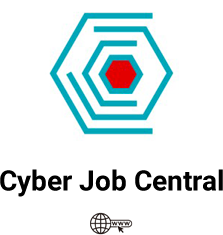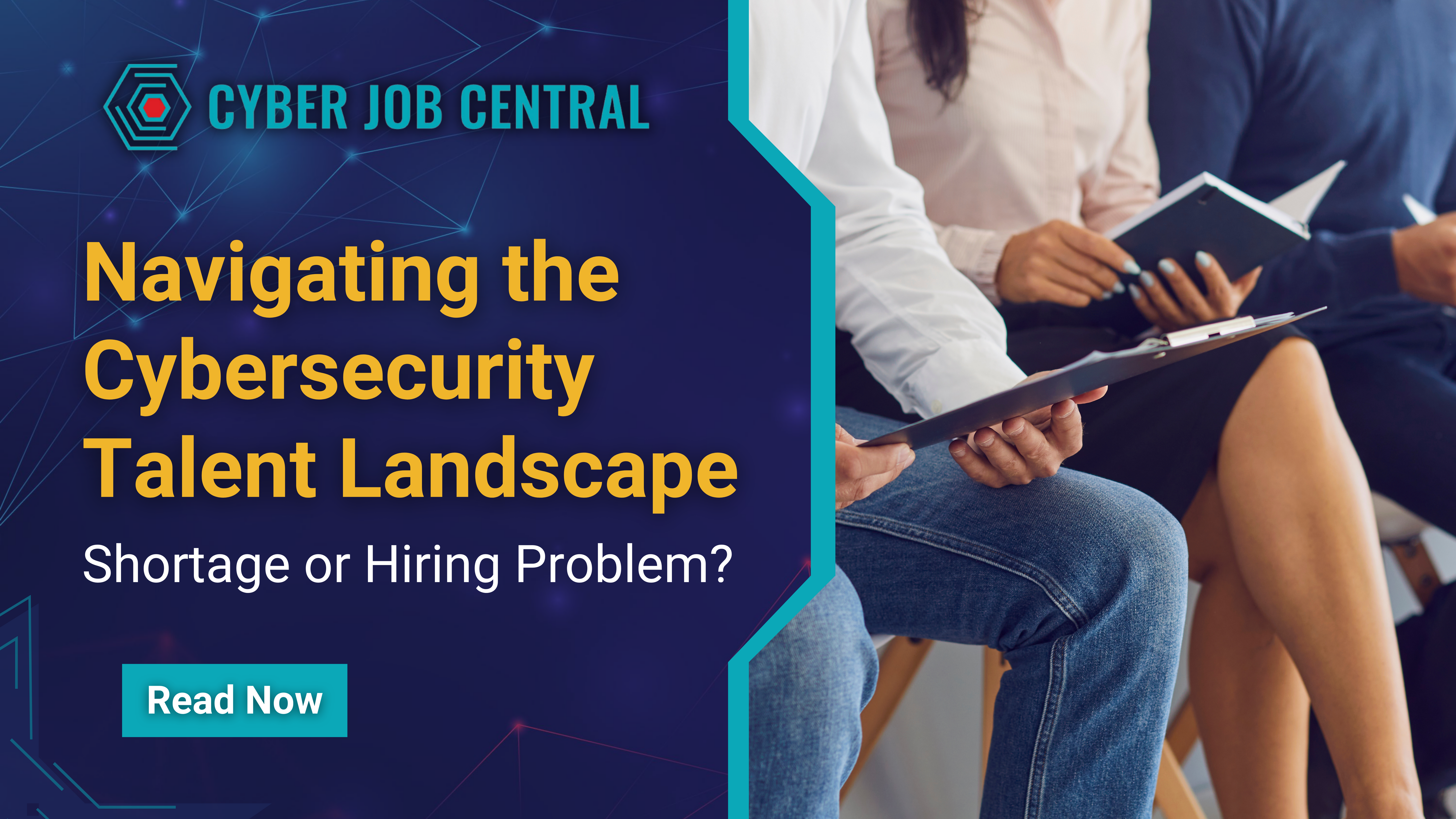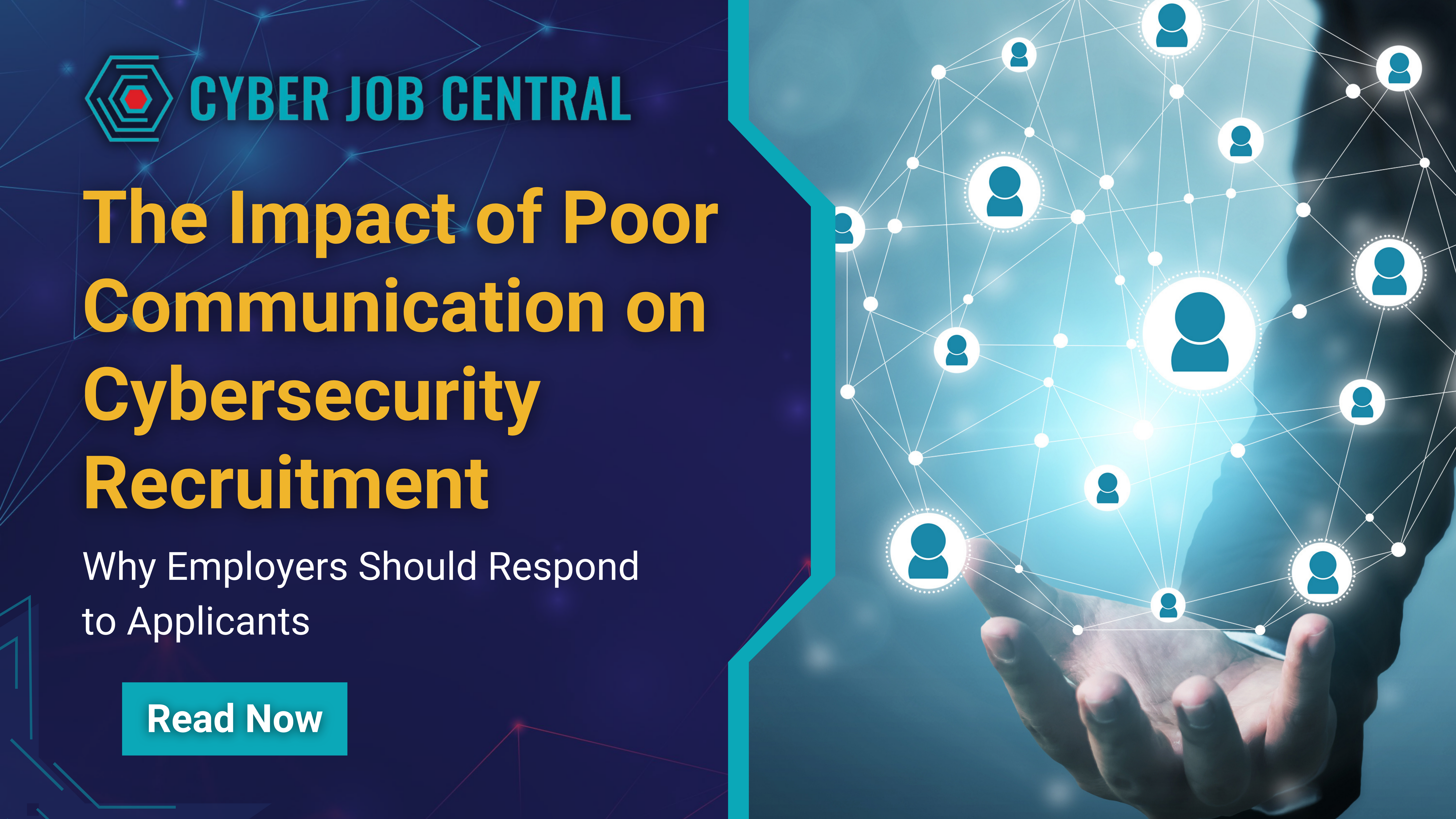Combatting Resume Fatigue in Cybersecurity: AI and Hiring Practices

Author: Colleen Lennox, Founder & CEO of Cyber Job Central and Cyber Job Academy
In today's rapidly evolving digital landscape, the demand for cybersecurity professionals has never been higher. As businesses and organizations increasingly rely on technology to conduct their operations, the need for skilled cybersecurity experts to protect sensitive data and systems is paramount. However, as the demand for cybersecurity talent grows, so does the problem of resume fatigue in the hiring process.
The Challenge of Resume Fatigue in Cybersecurity
The cybersecurity job market is highly competitive, with a constant influx of job openings and a limited pool of qualified candidates. As a result, HR teams in cybersecurity organizations are inundated with resumes and applications from prospective candidates. Reviewing and shortlisting resumes manually can be an overwhelming and time-consuming task, leading to what we call "resume fatigue."
Resume fatigue occurs when HR professionals become exhausted from the sheer volume of resumes they need to review. This exhaustion can lead to burnout, errors in judgment, and a delay in the hiring process. In the cybersecurity field, where timely hiring is crucial to maintaining digital security, these issues can be particularly detrimental.
The Role of AI in Combating Resume Fatigue
In the quest to address the challenges of resume fatigue, many organizations have turned to artificial intelligence (AI) to streamline their hiring processes. AI has the potential to automate resume screening and candidate matching, saving time and reducing the burden on HR teams. However, it's essential to recognize that AI in hiring comes with its own set of challenges and potential downsides, as highlighted in a Forbes Coaches Council article from August 14, 2019.
Potential Downsides of AI in Hiring
- Can Be Off-Putting For Candidates: While technology is useful, it's important not to lose sight of the human factor. Top talent might be put off by the lack of human touch.
- Learns Human Biases: AI needs a lot of data to screen resumes like humans. If not updated properly, it may adopt biases from patterns in historical data.
- Ignores Resumes That Aren't Search Engine Optimized: If resumes are not written in the most appropriate format, AI may overlook great candidates.
- Lacks 'Gut Instinct': AI can replace simplistic job responsibilities but cannot replicate human intuition and gut feeling.
- Doesn't Assess Tone, Personality, or Soft Skills: AI may miss out on assessing important factors like personality and soft skills.
- Misses 'Diamonds In The Rough': Human judgment is essential to identify exceptional candidates who don't fit typical AI patterns.
- Can't Predict Cultural Fit: AI cannot predict how well a person will fit into an organization's culture.
- Relies On Human Inputs: AI requires human direction and proper criteria definition to work effectively.
- Won't Evaluate Judgment And Decision-Making Skills: AI may not assess a candidate's judgment and decision-making abilities.
- Limited To The Candidate Pool That Applies Through The System: AI systems may limit hiring to a predefined pool, potentially missing out on exceptional candidates.
Balancing Innovation and Compliance
The rise of AI in hiring practices has also raised legal concerns and regulatory attention. Algorithmic bias, data privacy, and fairness in employment decisions have become focal points in discussions about AI in HR. An article titled "Balancing Innovation And Compliance: Navigating The Legal Landscape Of AI In Employment Decisions" by Alonzo Martinez, a Senior Contributor at Forbes, highlights the legal complexities that employers face with the use of AI in employment decisions.
The Future of Hiring in Cybersecurity
As the demand for cybersecurity professionals continues to grow, it's crucial to find a balance between the efficiency AI offers in combatting resume fatigue and the human touch required for accurate and fair hiring decisions. While AI can be a valuable tool, organizations must navigate the legal landscape and address potential biases to ensure they hire the best talent for the job.
In conclusion, the cybersecurity industry faces the unique challenge of resume fatigue, exacerbated by the highly competitive nature of the field. AI offers a promising solution to streamline the hiring process, but it must be used judiciously, with a keen eye on potential downsides and legal considerations. Ultimately, the successful integration of AI into cybersecurity hiring practices will require a thoughtful approach that combines the strengths of technology with the human expertise needed to make informed decisions.
Additional Reading: Balancing Innovation And Compliance: Navigating The Legal Landscape Of AI In Employment Decisions



